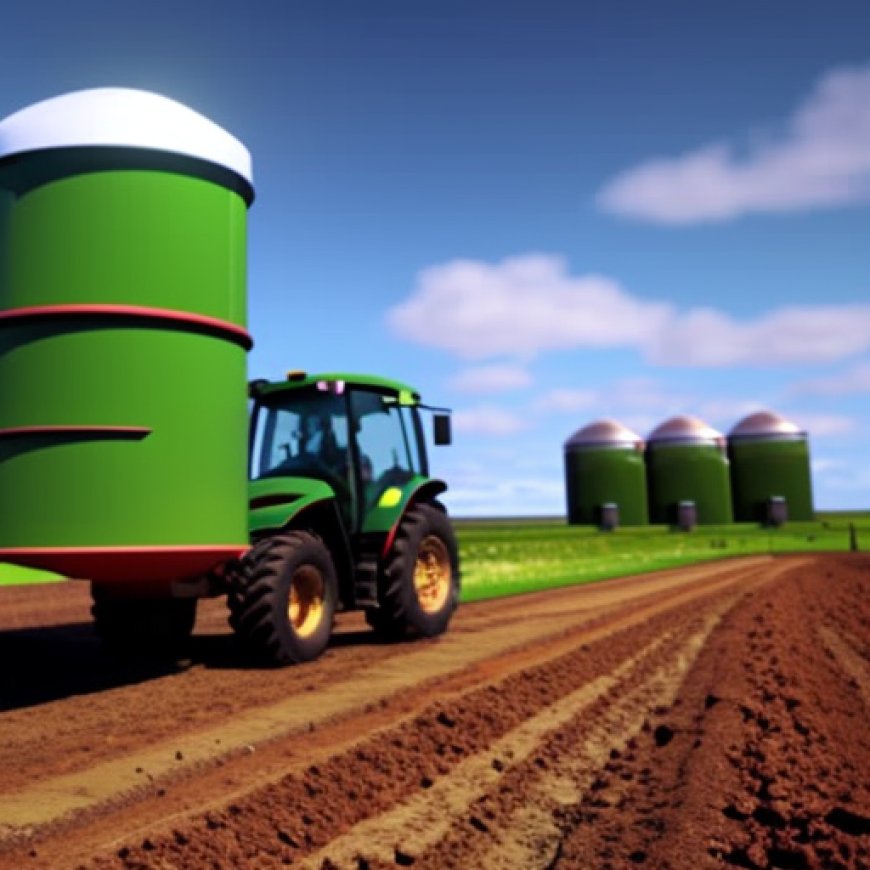Environment – Greater awareness of anaerobic digestion benefits at farm level needed – Teagasc
Environment - Greater awareness of anaerobic digestion benefits at ... Teagasc


Greater Awareness of Anaerobic Digestion Benefits at Farm Level Needed

15 November 2023
A survey conducted to assess farmers’ willingness to adopt anaerobic digestion has identified a potential knowledge gap at farm level in terms of the benefits this technology can bring.
Speaking from the Catchment Science 2023 Conference last week, Sadhbh Mahony, a Sustainability Data Technician working in the FLEET Project, provided a background to anaerobic digestion, including its benefits, while also disseminating the results of a survey completed last year.
Anaerobic digestion (AD), she commented, has been identified as a technology that can produce renewable energy from agricultural waste along with silage, while also reducing greenhouse gas emissions. AD would improve Irish farmers’ management of waste, produce a more effective fertiliser from organic manures and provide an extra source of revenue for farmers.
Under the Climate Action Plan, Ireland has set a target of producing 5.7TWh of biomethane from anaerobic digestion by 2030. To achieve this, feed stocks such as silage and slurries will be required from farms to feed AD plants.
Aiming to assess farmers’ willingness to adopt anaerobic digestion, a survey was provided to farmers involved in the National Farm Survey in 2022 to get an accurate representation of farmers nationally.
“Why farmers? Because farmers would be the primary adopters of anaerobic digestion as they would be the ones producing and supplying these feed stocks to reach the target of 5.7TWh of biomethane,” Sadhbh explained.
Farmers were asked a series of questions including:
- Would they supply silage?
- Would they supply slurry?
- Would they produce silage using multispecies or clover?
- Would they receive digestate?
- Would they join a co-operative?
Outlining the initial findings, Sadhbh said over 62% of farmers were not willing to participate in adopting AD. Whereas, 20% of farmers were willing to adopt AD. The majority of farmers were not willing to supply slurry, silage or join a co-operative. However, receiving the fertiliser, in the form of digestate that comes from the AD plant, had a higher percentage uptake of 46%. As part of this work, different farm systems and sizes were examined and the preliminary results showed no differences.
Commenting on the results of the survey, Sadhbh said: “This gives us an indication that the majority of farmers have overlooked this new technology and the benefits it has for them. The results from the survey showed maybe farmers are unsure of the new technology; they may require more information and knowledge and there needs to be more information and awareness on anaerobic digestion for farmers to adopt this new technology.
“A better insight into the factors is needed to understand the barriers and obstacles farmers face in adopting AD,” she said.
Concluding on a positive note though, Sadhbh said that the farmers willing to adopt are representative of about 25% of the total farming population, which is sufficient to produce the feed stocks required to achieve the Climate Action Plan target of producing 5.7TWh of biomethane from anaerobic digestion by 2030.
Also read:
- Developing an Irish biomethane industry
- Agriculture’s role in biomethane production
- Catchment Science 2023
SDGs, Targets, and Indicators
1. Sustainable Development Goal: Goal 7 – Affordable and Clean Energy
- Target 7.2: Increase substantially the share of renewable energy in the global energy mix
- Indicator 7.2.1: Renewable energy share in the total final energy consumption
The article discusses anaerobic digestion as a technology that can produce renewable energy from agricultural waste. This aligns with Goal 7, which aims to ensure access to affordable, reliable, sustainable, and modern energy for all. The specific target relevant to the article is to increase the share of renewable energy in the global energy mix. The article mentions that Ireland has set a target of producing 5.7TWh of biomethane from anaerobic digestion by 2030, indicating a commitment to increasing the share of renewable energy.
2. Sustainable Development Goal: Goal 13 – Climate Action
- Target 13.2: Integrate climate change measures into national policies, strategies, and planning
- Indicator 13.2.1: Number of countries that have integrated mitigation, adaptation, impact reduction, and early warning measures into national policies, strategies, and planning
The article highlights anaerobic digestion as a technology that can reduce greenhouse gas emissions. This aligns with Goal 13, which aims to take urgent action to combat climate change and its impacts. The specific target relevant to the article is to integrate climate change measures into national policies, strategies, and planning. The article mentions that Ireland has set a target of producing 5.7TWh of biomethane from anaerobic digestion by 2030 as part of its Climate Action Plan, indicating a commitment to integrating this technology into national planning.
Table: SDGs, Targets, and Indicators
| SDGs | Targets | Indicators |
|---|---|---|
| Goal 7 – Affordable and Clean Energy | Target 7.2: Increase substantially the share of renewable energy in the global energy mix | Indicator 7.2.1: Renewable energy share in the total final energy consumption |
| Goal 13 – Climate Action | Target 13.2: Integrate climate change measures into national policies, strategies, and planning | Indicator 13.2.1: Number of countries that have integrated mitigation, adaptation, impact reduction, and early warning measures into national policies, strategies, and planning |
Behold! This splendid article springs forth from the wellspring of knowledge, shaped by a wondrous proprietary AI technology that delved into a vast ocean of data, illuminating the path towards the Sustainable Development Goals. Remember that all rights are reserved by SDG Investors LLC, empowering us to champion progress together.
Source: teagasc.ie

Join us, as fellow seekers of change, on a transformative journey at https://sdgtalks.ai/welcome, where you can become a member and actively contribute to shaping a brighter future.







